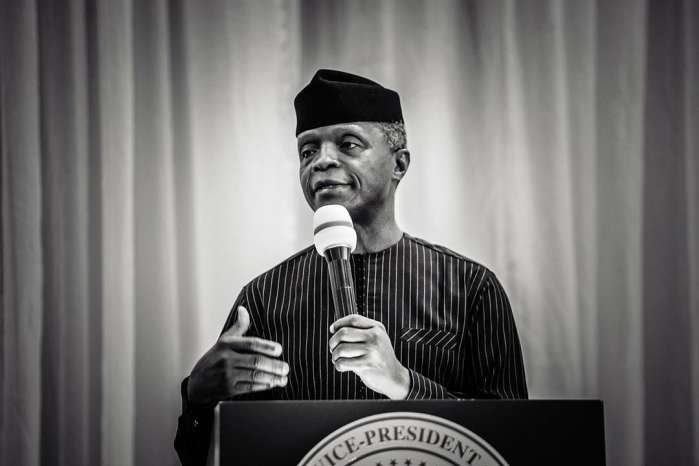VP Osinbajo wants African industries to develop regional value chains

The vice president, Prof Yemi Osinbajo, said to increase the competitiveness of African industries is to develop and deepen regional value chains.
Osinbajo stated this at the Manufacturers Association of Nigeria (MAN) roundtable on industrialisation in Africa themed: ‘Positioning African Industries for Economic Transformation and Continental Free Trade’.
According to the vice president, the theme for the roundtable is an important one. We must all, governments and private sector alike, pay close attention to ‘Positioning African Industries for Economic Transformation and Continental Free Trade.’
He noted that manufacturing is critical to economic transformation, saying that it has been key in adding value to agricultural products and minerals and has also been a major motor of economic growth because it boosts productivity.
“Equally compelling from the perspective of Nigeria which has a large population is that manufacturing has the potential to create a large number of sustainable jobs. Given a large number of entrants into the workforce every year and the important role of employment in reducing poverty, there is no doubt at all that industrialization must remain a key priority for African countries,” he said.
He added that “One of the ways to increase the competitiveness of African industries is to develop and deepen regional value chains wherein production systems starting from conception and design right through to supply of raw materials, processing, transport, storage, marketing, and sales take place within our countries and continent. When we export commodities to the rest of the world, we are also exporting jobs and the positive spillover effects such as learning that come with manufacturing are lost.”
He noted that “We are already beginning to see some green shoots emerging in this regard as Nigerian fertilizer blenders obtain phosphates from Morocco for blending with urea produced in our petrochemical plants. Similarly, South African car manufacturers already buy leather for car seats from Botswana. We however need much more of such activities.”
He explained that “There are a number of other things that need to be put in place quite quickly if we are to see the kind of manufacturing activity that we desire; developing a strong infrastructural base; building a network of roads, bridges, and rail; deepening the ecosystem for domestic and regional value chains, and ease payments across borders.”
He pointed out that it is quite essential to develop and deepen inter-regional and continental payments systems, adding that it is particularly important in this regard to rapidly operationalize the effort by Afreximbank to establish a Pan-African Payments and Settlement Platform and this will go a long way in creating the desired continental payments system and also in facilitating cross-border informal trade which is estimated to be about $93 billion per annum.
The director-general of MAN, Segun Ajayi-Kadir stated that in celebration of the 50 years of existence of the Manufacturers Association of Nigeria, the roundtable on industrialization is been organized as a stand-alone event, saying that industrialization should remain a priority on the list of requirements for the successful implementation of African Continental Free Trade Area (AfCFTA).
TodayNG
editor's pick
latest video
news via inbox
Nulla turp dis cursus. Integer liberos euismod pretium faucibua




